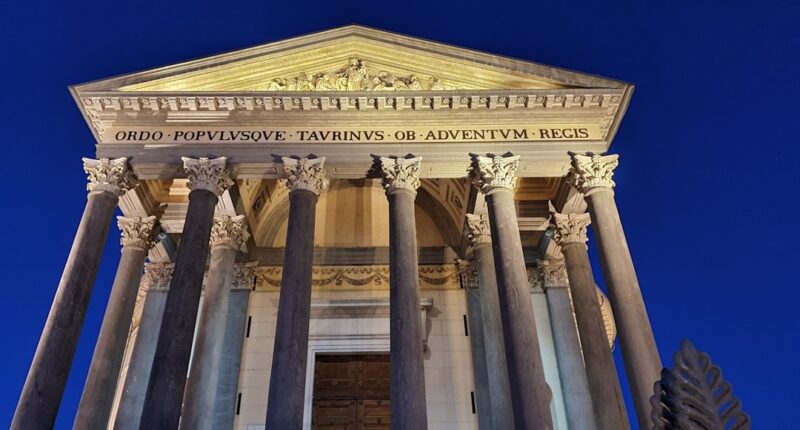The music industry has undergone a significant transformation with the rise of streaming platforms. Gone are the days when music lovers had to purchase physical copies of albums or singles. Today, music is readily accessible at the touch of a button, thanks to platforms like Spotify, Apple Music, and Amazon Music. These platforms have revolutionized the way people consume music, offering a vast library of songs and albums for a monthly subscription fee or even for free with ads. This shift in consumption has had a profound impact on the music industry, changing the way artists release and promote their music.
Streaming platforms have not only made music more accessible to listeners but have also provided a new revenue stream for artists. While physical album sales have declined, streaming has become the primary source of income for many musicians. This has forced artists to adapt their marketing and promotional strategies to cater to the streaming audience. Additionally, streaming platforms have also changed the way music is discovered, with algorithms and personalized playlists playing a significant role in introducing listeners to new artists and genres. As a result, artists now have to focus on creating music that not only resonates with their existing fan base but also has the potential to be picked up by algorithmic playlists, thus reaching a wider audience.
The rise of streaming platforms has also led to a shift in how record labels operate. With physical sales dwindling, labels have had to reevaluate their business models and focus on securing favorable deals with streaming services. Additionally, independent artists now have the opportunity to release their music directly on these platforms without the need for a traditional record deal. This democratization of music distribution has empowered artists to have more control over their careers and reach their audience directly. Overall, streaming platforms have reshaped the music industry, from how music is consumed to how artists promote and distribute their work.
Virtual Concerts: A New Way to Experience Live Music
The COVID-19 pandemic brought live music events to a standstill, forcing artists and event organizers to find alternative ways to connect with their audience. This led to the rise of virtual concerts, which have become a new way for fans to experience live music from the comfort of their homes. Virtual concerts have allowed artists to continue performing and engaging with their fans while adhering to social distancing guidelines. These events are typically live-streamed on various platforms, offering fans the opportunity to purchase tickets and access exclusive performances from their favorite artists.
Virtual concerts have not only provided a lifeline for artists during the pandemic but have also opened up new opportunities for reaching global audiences. With traditional live events limited by venue capacity and geographical constraints, virtual concerts have the potential to reach fans from all corners of the world. This has allowed artists to expand their reach and connect with fans who may not have had the opportunity to attend a physical concert. Additionally, virtual concerts have presented new creative possibilities for artists, with the ability to incorporate interactive elements, virtual reality experiences, and innovative stage designs that may not be feasible in a traditional live setting.
While virtual concerts cannot fully replicate the energy and atmosphere of an in-person event, they have proven to be a viable alternative during times when live events are not possible. As the world begins to recover from the pandemic, virtual concerts are likely to remain a part of the live music landscape, offering fans a convenient and accessible way to experience their favorite artists. The success of virtual concerts has demonstrated that technology can bridge the gap between artists and their audience, providing a new dimension to the live music experience.
NFTs: How Blockchain Technology is Impacting the Music Industry
Non-fungible tokens (NFTs) have emerged as a groundbreaking technology with the potential to revolutionize the way music is created, distributed, and monetized. NFTs are unique digital assets that are stored on a blockchain, providing proof of ownership and authenticity for digital content such as music, artwork, and collectibles. In the music industry, NFTs have opened up new opportunities for artists to create and sell exclusive digital content directly to their fans. This includes releasing limited edition songs, albums, or even ownership rights to a portion of an artist’s catalog.
NFTs have also introduced a new revenue stream for musicians, allowing them to monetize their work in innovative ways. By selling exclusive NFTs, artists can generate income from collectors and fans who are willing to invest in unique digital assets tied to their favorite music. Additionally, NFTs have the potential to address issues of ownership and royalties in the music industry, providing a transparent and decentralized system for compensating artists and creators. This has the potential to disrupt traditional music distribution models and empower artists to take greater control over their intellectual property.
Furthermore, NFTs have enabled artists to engage directly with their fan base, offering them exclusive access to unreleased music, behind-the-scenes content, and interactive experiences. This direct-to-fan approach has the potential to deepen the connection between artists and their audience, fostering a sense of community and support for their creative endeavors. While NFTs are still in the early stages of adoption within the music industry, they represent a significant shift in how music is valued, consumed, and shared in the digital age.
The Evolution of Music Marketing in the Digital Age
| Year | Marketing Strategy | Metrics |
|---|---|---|
| 2000 | Traditional advertising (TV, radio, print) | Album sales, radio airplay |
| 2010 | Social media marketing, influencer partnerships | YouTube views, social media engagement |
| 2020 | Streaming platform promotion, data-driven targeting | Streaming numbers, listener demographics |
The digital age has transformed the landscape of music marketing, presenting new opportunities and challenges for artists and record labels. With the rise of social media, streaming platforms, and digital advertising, musicians now have a multitude of channels to promote their music and connect with their audience. This has led to a shift in marketing strategies, with an increased focus on creating engaging content, building a strong online presence, and leveraging data-driven insights to reach target audiences.
Social media platforms such as Instagram, TikTok, and YouTube have become essential tools for promoting music and engaging with fans. Artists can use these platforms to share behind-the-scenes content, interact with their audience in real-time, and build a loyal fan base. Additionally, social media influencers have become influential tastemakers in the music industry, with the ability to introduce new music to their followers and drive trends through viral content. As a result, artists and record labels are increasingly collaborating with influencers to amplify their marketing efforts and reach new audiences.
Furthermore, data analytics and digital advertising have become integral components of music marketing strategies. With access to detailed insights on listener behavior and preferences, artists can tailor their promotional efforts to effectively target specific demographics and regions. This data-driven approach allows for more efficient use of marketing budgets and better understanding of what resonates with audiences. Additionally, digital advertising on platforms like Facebook and Google has become a powerful tool for reaching potential fans and driving streams and sales.
The evolution of music marketing in the digital age has also led to an increased emphasis on storytelling and brand building. Artists are now expected to craft compelling narratives around their music and personal brand, creating an emotional connection with their audience. This approach extends beyond traditional album releases and encompasses ongoing content creation, collaborations with brands, and immersive experiences that go beyond just the music itself. As technology continues to evolve, so too will the strategies and tactics used in music marketing, shaping the way artists connect with their audience in the digital era.
Leveraging Influencer Marketing for Musicians
Influencer marketing has become a powerful tool for musicians looking to expand their reach and connect with new audiences. Social media influencers have amassed dedicated followings across various platforms, making them valuable partners for promoting music and engaging with fans. By collaborating with influencers, musicians can leverage their influence to introduce their music to new listeners, drive engagement, and create buzz around upcoming releases.
Influencers offer musicians access to niche communities and demographics that align with their target audience. Whether it’s fashion influencers on Instagram or gaming streamers on Twitch, there are influencers across different verticals who can help musicians reach specific segments of their fan base. This targeted approach allows musicians to connect with audiences who may not be reached through traditional marketing channels.
Additionally, influencers bring authenticity and credibility to music promotion efforts. Their followers trust their recommendations and are more likely to engage with content that is shared by influencers they follow. By partnering with influencers who genuinely resonate with their music, musicians can tap into an engaged audience that is receptive to discovering new artists and songs.
Furthermore, influencer marketing offers musicians opportunities for creative collaboration and content creation. From sponsored posts featuring music releases to behind-the-scenes content from studio sessions or live performances, influencers can help create compelling narratives around an artist’s music that resonate with their audience. This collaborative approach allows musicians to connect with fans in an authentic way while leveraging the creativity and storytelling skills of influencers.
As influencer marketing continues to evolve, musicians will need to adapt their strategies to effectively leverage this channel for promotion. This includes identifying the right influencers for their brand, developing authentic partnerships that align with their values, and measuring the impact of influencer collaborations on key performance indicators such as streams, sales, and engagement metrics. By harnessing the power of influencer marketing, musicians can expand their reach and connect with new fans in meaningful ways.
The Future of Music Distribution and Monetization

The future of music distribution and monetization is being shaped by technological advancements that are redefining how artists release and monetize their work. With streaming platforms dominating the way people consume music, artists are exploring new avenues for distributing their music directly to fans while maximizing their earning potential.
One emerging trend in music distribution is direct-to-fan platforms that enable artists to release exclusive content directly to their audience. These platforms allow artists to bypass traditional record labels and streaming services by offering fans access to limited edition releases, exclusive merchandise bundles, and behind-the-scenes content in exchange for direct financial support. By cultivating a dedicated fan base through these direct-to-fan platforms, artists can create sustainable revenue streams while maintaining creative control over their work.
Furthermore, blockchain technology is poised to revolutionize how music is distributed and monetized through decentralized platforms that offer transparent royalty payments and ownership rights for creators. By leveraging blockchain technology, artists can ensure fair compensation for their work while providing fans with verifiable proof of ownership for digital content such as songs or albums. This decentralized approach has the potential to disrupt traditional distribution models by empowering artists with greater control over their intellectual property.
Additionally, live streaming has emerged as a key component of music distribution and monetization in the digital age. With virtual concerts becoming increasingly popular, artists have the opportunity to monetize live performances through ticket sales, exclusive access passes, and virtual merchandise offerings. Live streaming also provides a platform for interactive experiences such as Q&A sessions, meet-and-greets, and virtual fan events that allow artists to connect with their audience in real-time while generating revenue.
As technology continues to evolve, so too will the methods by which artists distribute and monetize their music. From direct-to-fan platforms to blockchain-powered distribution models and live streaming experiences, the future of music distribution will be defined by innovative approaches that prioritize artist empowerment and fan engagement.
Navigating the Intersection of Technology and Music Business
The intersection of technology and the music business presents both opportunities and challenges for artists, record labels, and industry professionals as they navigate an ever-evolving landscape shaped by digital innovation.
One significant opportunity lies in data-driven insights that enable informed decision-making across all aspects of the music business. From identifying emerging trends in listener behavior to understanding regional preferences for specific genres or styles of music, data analytics provide valuable insights that can inform marketing strategies, tour planning, and content creation. By leveraging data-driven insights, artists can optimize their promotional efforts while record labels can make informed decisions about signing new talent or investing in marketing campaigns.
Furthermore, advancements in artificial intelligence (AI) are transforming how music is created, produced, and distributed. AI-powered tools offer musicians new ways to experiment with sound design, generate musical ideas, and even personalize experiences for listeners through algorithmic recommendations. This intersection of AI technology with music creation presents opportunities for innovation while challenging traditional notions of authorship and creativity.
However, navigating the intersection of technology and the music business also presents challenges related to copyright protection, licensing agreements, and fair compensation for creators. As new technologies emerge that enable greater access to digital content such as music samples or remixes, there is a need for robust systems that protect intellectual property rights while ensuring fair compensation for all parties involved.
Additionally, as streaming platforms continue to dominate how people consume music, there is an ongoing debate about equitable compensation for artists in an era where streaming revenue is distributed based on complex algorithms that may not always favor smaller or independent creators. This has led to discussions about reforming royalty structures and advocating for fair compensation within the digital ecosystem.
As technology continues to shape the future of the music business, it will be essential for industry stakeholders to collaborate on solutions that address these challenges while embracing the opportunities presented by digital innovation. By fostering an environment that prioritizes artist empowerment, fair compensation, and technological innovation, the intersection of technology and the music business can lead to a more sustainable and inclusive industry for creators and fans alike.
As technology continues to shape the future of the music business, it will be essential for industry stakeholders to collaborate on solutions that address these challenges while embracing the opportunities presented by digital innovation. By fostering an environment that prioritizes artist empowerment, fair compensation, and technological innovation, the intersection of technology and the music business can lead to a more sustainable and inclusive industry for creators and fans alike. This will require a commitment to transparency, ethical use of data, and a willingness to adapt to the ever-changing landscape of digital platforms and consumer behavior. Ultimately, by working together to harness the potential of technology, the music industry can thrive in the digital age while ensuring that artists are fairly compensated for their work and that fans have access to a diverse and vibrant array of musical experiences.









